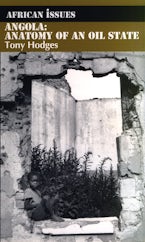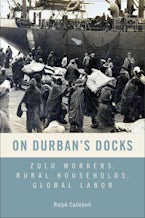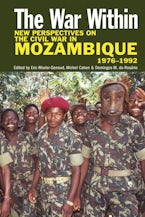
Manhood, Morality & the Transformation of Angolan Society
MPLA Veterans & Post-war Dynamics
- Description
- Contents
- Author
- Reviews
A detailed examination of African war veterans that reveals the changes they wrought on postwar transition and society.
SPECIAL COMMENDATION FOR 2020 AMAURY TALBOT PRIZE FOR AFRICAN ANTHROPOLOGY
Between 1975 and 2002 Angola underwent a very destructive civil war, in which much of the non-elite male population was conscripted into one or other of the contending armies, the country urbanised very rapidly, and colonial-era political and moral economies were radically reshaped. This book presents a detailed examination of the pronounced changes this wrought on Angolan society, and, for the first time, the gendered impact on a generation of Angolan menrecruited by the governing MPLA.
Spall shows that the war's effects went far beyond the political and economic, to affect sexual relations, the social valuation of money, respect for elder male wisdom and what it meant to bea senior man, and the role of Christianity in everyday life. Masculinity was central to how the social transformations of war were intimately experienced by Angolan soldiers and the book investigates the consequences of the men'sexperiences when they returned home and the important role of military service in constructing Angola's post-war social trajectory. A powerful study of the gendered dynamics created by the war, the book will not only be of interest to Angolanists, but to those researching masculinity and military service on the continent, and in the wider sphere.
SPECIAL COMMENDATION FOR 2020 AMAURY TALBOT PRIZE FOR AFRICAN ANTHROPOLOGY
Between 1975 and 2002 Angola underwent a very destructive civil war, in which much of the non-elite male population was conscripted into one or other of the contending armies, the country urbanised very rapidly, and colonial-era political and moral economies were radically reshaped. This book presents a detailed examination of the pronounced changes this wrought on Angolan society, and, for the first time, the gendered impact on a generation of Angolan menrecruited by the governing MPLA.
Spall shows that the war's effects went far beyond the political and economic, to affect sexual relations, the social valuation of money, respect for elder male wisdom and what it meant to bea senior man, and the role of Christianity in everyday life. Masculinity was central to how the social transformations of war were intimately experienced by Angolan soldiers and the book investigates the consequences of the men'sexperiences when they returned home and the important role of military service in constructing Angola's post-war social trajectory. A powerful study of the gendered dynamics created by the war, the book will not only be of interest to Angolanists, but to those researching masculinity and military service on the continent, and in the wider sphere.
Introduction - the moral economy of masculinity, soldiering and war
"My Life is not a Secure Life": Manhood, ethics and survival amidst the social transformations of war
The moral economy of veterans' political disengagement
"These things are going to ruin the country": The moral economy of social mobility and enrichment
"At the bottom of everything, it was a lack of economic means": Love, money and masculine dignity
Two cultural styles of masculinity
Conclusion - Veteranhood and beyond in comparative perspective
"My Life is not a Secure Life": Manhood, ethics and survival amidst the social transformations of war
The moral economy of veterans' political disengagement
"These things are going to ruin the country": The moral economy of social mobility and enrichment
"At the bottom of everything, it was a lack of economic means": Love, money and masculine dignity
Two cultural styles of masculinity
Conclusion - Veteranhood and beyond in comparative perspective
"Manhood, Morality and the Transformation of Angolan Society is a compelling ethnographic study of Angolan veterans. Putting former combatants at the center of his analysis, Spall explicitly engages with some of the more pressing debates in the scholarship on soldiering and masculinity in war veterans, notably the significance of understanding the complexity of veterans' masculine identities through moral economy. [...] Manhood, Morality and the Transformation of Angolan Society provides us with a timely reminder of how former fighters understand their own postwar experiences and nurture their ability to build social relationships." AFRICA IS A COUNTRY
"This book is an important contribution to the social history of Angola that now finds its way into our bookshelves, written by an author who is an authoritative voice in what concerns the post-war experiences of war veterans. It is a must-read for everyone with an interest in Angola, particularly the younger generation looking to complete the national picture beyond the capital city of Luanda." African Studies Review
"Spall's work places a human face on the Cold War. Focusing on how ideas of masculinity were challenged and modified by the Angolan Civil War illustrates the confluence of ideology and social change in the late twentieth and early twenty-first centuries." H-Net Reviews
Hardcover
9781847012500
April 2020
£70.00 / $105.00
Ebook (EPDF)
9781787448865
April 2020
$29.95 / £24.99




